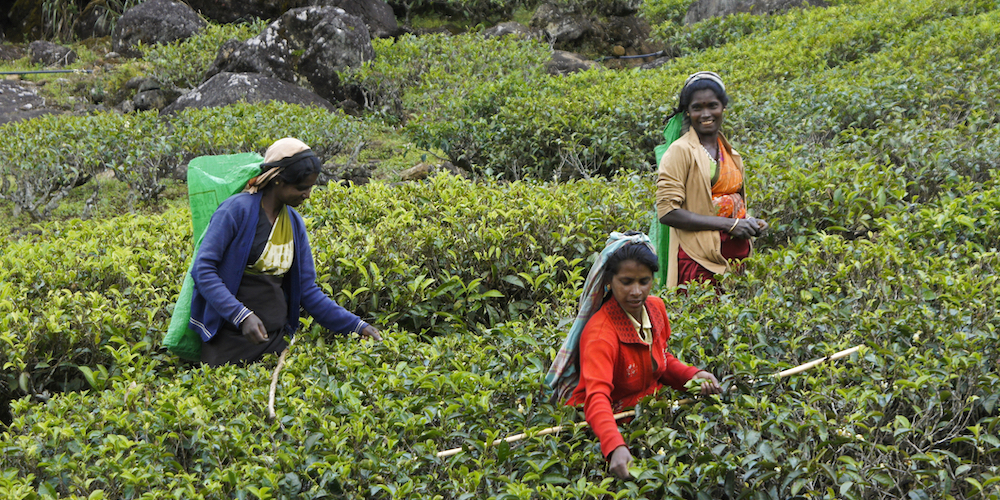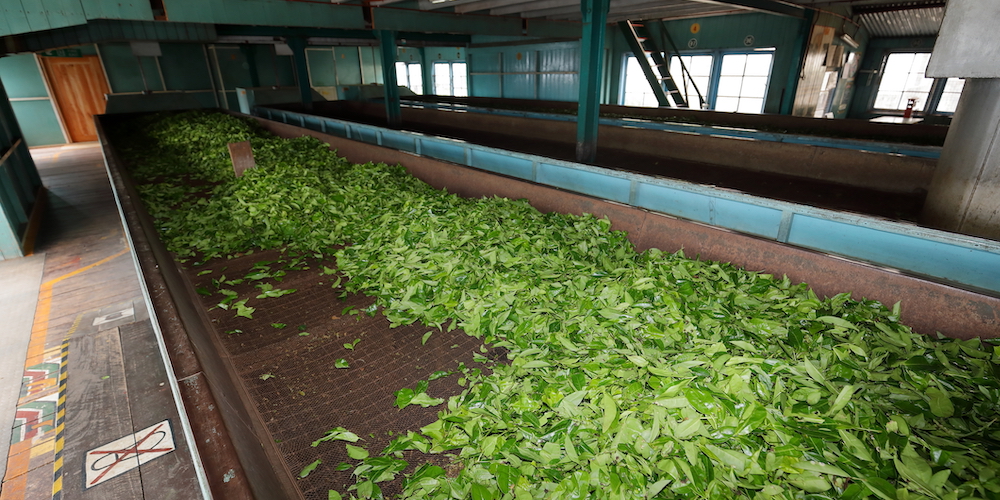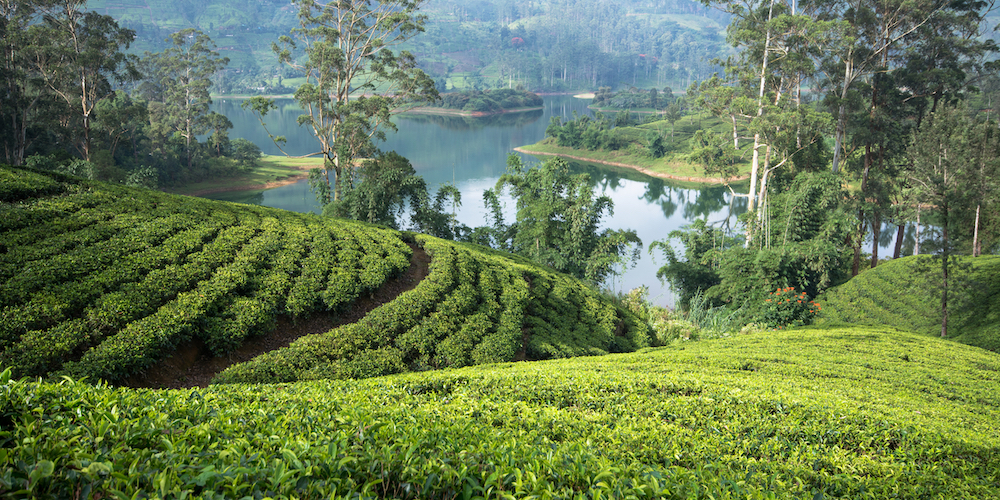Sri Lanka’s Tea Farmers are in Trouble

Bad News for Ceylon Tea Lovers
Sri Lanka’s tea farmers are struggling. Due to the political terminal and decisions made by the government of Sri Lanka, tea farmers are worried about their future and the production of Ceylon Tea. Sri Lankan tea is world-renowned for its quality, and the country has a long history of producing some of the best tea in the world. However, recent political decisions have put the future of Sri Lankan tea farming in jeopardy.
The government of Sri Lanka recently announced that it will be ended the preferential treatment that Sri Lankan tea farmers have received for decades. This decision could have a devastating effect on the Sri Lankan tea industry, as it would make it difficult for farmers to compete with other countries’ teas on the world market.
Additionally, the government has also been slow to address the needs of tea farmers, who have been calling for higher prices for their tea and more support from the government.
The future of Sri Lankan tea farming is uncertain. However, one thing is certain: the country’s tea farmers are facing challenges that could jeopardize their livelihoods.

Sri Lanka’s Crop Could be Around 15% Lower this Year
The COVID-19 pandemic has also had an impact on the Sri Lankan tea industry in other ways. For example, workers have been unable to come to Sri Lanka to work in the tea plantations due to travel restrictions. This has led to a shortage of labor, and as a result, many farmers have been forced to hire workers at higher wages.
All of these factors are putting pressure on Sri Lankan tea farmers. They are struggling to make ends meet and they are worried about their future. The Sri Lankan tea industry is at a crossroads, and it is unclear what the future holds for the country’s tea farmers.
Government Decision to Ban Chemical Fertiliser
The government of Sri Lanka recently announced that it will be banning the use of chemical fertilizers on tea plantations. This decision could have a devastating effect on the Sri Lankan tea industry, as it would make it difficult for farmers to produce tea of the same quality as other countries.
Additionally, the government has also been slow to address the needs of tea farmers, who have been calling for higher prices for their tea and more support from the government.
In 2015, former President Maithripala Sirisena banned the import and use of glyphosate, and other chemical fertilizers, in Sri Lanka. However, this decision was not enforced and tea farmers continued to use these chemicals. The government’s recent announcement to ban chemical fertilizers will finally put an end to this practice.
While the government’s decision to ban chemical fertilizers is commendable, it will have a negative impact on the Sri Lankan tea industry. Farmers will no longer be able to use these chemicals to fertilize their crops, and as a result, they will likely see a decrease in production.
Additionally, the cost of producing tea without chemical fertilizers is likely to be higher, which could make Sri Lankan tea less competitive on the world market.

Government to Set up a Board to Look into the Tea Industry
The government of Sri Lanka recently announced that it will be setting up a board to look into the tea industry. This decision could have a positive effect on the Sri Lankan tea industry, as it would allow the government to address the needs of tea farmers and make decisions that would improve the industry.
However, the government has been slow to act on this decision, and it is not clear when the board will be established or what its members will be tasked with doing. The future of Sri Lankan tea farming is uncertain. However, one thing is certain: the country’s tea farmers are facing challenges that could jeopardize their livelihoods.
Risk to jobs: Industry Employs Two Million People
The tea industry is a vital part of the Sri Lankan economy, employing two million people. However, the recent decisions by the government could put many of these jobs at risk. If the tea industry is unable to compete on the world market or if the government does not provide adequate support to tea farmers, it is possible that many people will lose their jobs.
Despite the challenges they are facing, Sri Lanka’s tea farmers are some of the most experienced in the world. They have been producing tea for over 150 years and have a deep knowledge of the plant and how to cultivate it.
Conclusion
The future of Sri Lankan tea farming is uncertain. The country’s tea farmers are facing challenges that could jeopardize their livelihoods. The Sri Lankan tea industry is at a crossroads, and it is unclear what the future holds for the country’s tea farmers.

 Loose Leaf Tea
Loose Leaf Tea Pyramids
Pyramids Tea Bags
Tea Bags Africa
Africa Assam
Assam Ceylon
Ceylon Chinese
Chinese Darjeeling
Darjeeling European
European Indian
Indian Japan
Japan Nepal
Nepal South East Asia
South East Asia Ayurveda Tea
Ayurveda Tea Black Tea
Black Tea Chai Tea
Chai Tea Flowering Tea
Flowering Tea Fruit Tisanes
Fruit Tisanes Green Tea
Green Tea Herbal Tea
Herbal Tea Matcha Tea
Matcha Tea Oolong Tea
Oolong Tea Organic Tea
Organic Tea Pu erh Tea
Pu erh Tea Rooibos Tea
Rooibos Tea White Tea
White Tea Asian Coffee
Asian Coffee Caribbean Coffee
Caribbean Coffee Central American Coffee
Central American Coffee South American Coffee
South American Coffee Coffee Blends
Coffee Blends Decaffeinated Coffee
Decaffeinated Coffee Espresso Coffee
Espresso Coffee Ethically Sourced Coffee
Ethically Sourced Coffee Flavoured Coffee
Flavoured Coffee Organic Coffee
Organic Coffee Single Origin Coffee
Single Origin Coffee Chocolate 1
Chocolate 1 Chocolate 2
Chocolate 2 Chocolate 3
Chocolate 3 Chocolate 4
Chocolate 4 Chocolate 5
Chocolate 5 Chocolate 6
Chocolate 6 Chocolate 7
Chocolate 7 Chocolate 8
Chocolate 8 Chocolate 9
Chocolate 9 Loose Tea Filters
Loose Tea Filters Tea Accessories
Tea Accessories Tea Bricks
Tea Bricks Tea Caddies
Tea Caddies Tea Caddy Spoons
Tea Caddy Spoons Tea Gift Ideas
Tea Gift Ideas Tea Infusers
Tea Infusers Tea Strainers
Tea Strainers